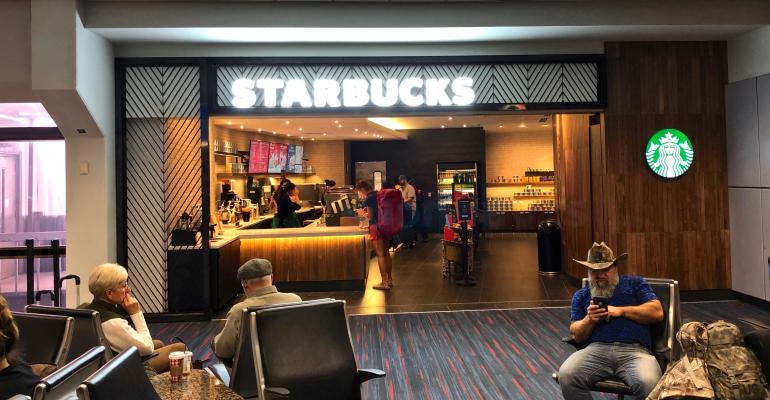Starbucks Investors Vote to Remove Diversity and Sustainability References from Executive Pay Package

Earlier this week, after Starbucks’ annual shareholders’ meeting, company investors voted on several initiatives, including a new executive compensation package that would omit diversity and sustainability goals from bonus considerations for top leadership at the company. Shareholders voted overwhelmingly (90% yes votes) to approve the new compensation packages, though the vote is technically nonbinding to company policy.
This bonus initiative was first introduced in 2020 as a company-wide effort to support diversity, equity, and inclusion at Starbucks and was quickly emulated by other major foodservice chains nationally, including Chipotle, which increased the percentage of its executive bonus ties to company ESG goals from 10% to 15% in 2022.
Last year, 7.5% of Starbucks executive bonus consideration was tied to diversity, while 7.5% was based on sustainability goals. In the proposed outline for 2024, 75% of executive bonus consideration would be tied to overall financial performance and 25% would be based on individual performance. Additionally, the company replaced the word “representation” with “talent” in its PRSU (performance-related restricted stock unit grant) program “to include a broader spectrum of the workforce and provide for different representation improvement targets.”
Additionally, Starbucks investors voted against a shareholder proposal requesting a report on direct and systemic discrimination, and also voted against a request for a report on human rights policies. Shareholders also again declined to create a report to reconsider non-dairy-based milk pricing.
Although Starbucks still maintains diversity and inclusion goals within the company’s compensation structure, the coffee chain is not alone in walking back some of its DEI initiatives, many of which were introduced or ramped up in the wake of Black Lives Matter protests during the summer of 2020.
As initially reported by Reuters in December, at least six major companies, including Yum Brands, changed some of their DEI-based internal policies after being threatened with lawsuits by conservative legal organizations, the America Civil Rights Project and America First Legal. Yum Brands subsequently removed references to “specific racial groups” in its most recent executive compensation plans. In Nov. 2022, the National Center for Public Policy Research sued Starbucks for setting hiring goals for minority groups, and for tying executive pay to DEI goals.
Original Article:
[H/T] RestaurantBusinessOnline.com









 Powered by
Powered by